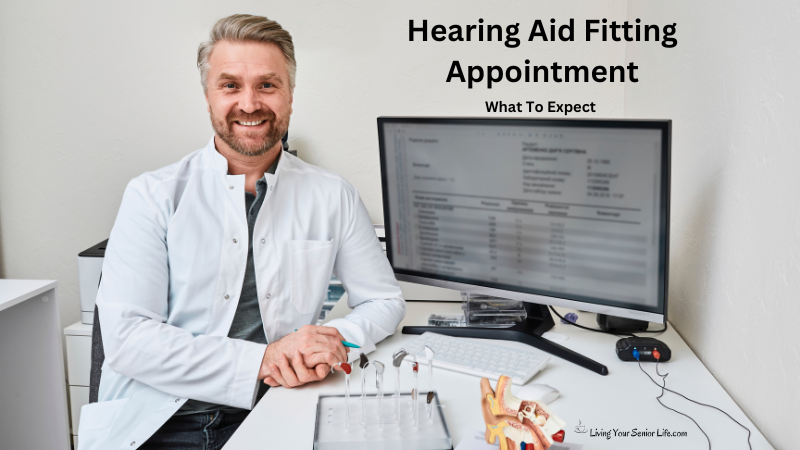If you are experiencing hearing difficulties, you may be wondering if a hearing amplifier is right for you. Understanding the differences between hearing amplifiers and hearing aids, as well as the potential risks and benefits of using a hearing amplifier, is crucial in making an informed decision. In this article, we will explore what hearing amplifiers are and provide you with the information you need to decide if one is right for you.
Key Takeaways:
- Understanding the differences between hearing amplifiers and hearing aids is crucial in making an informed decision.
- Hearing amplifiers are a type of PSAP that can help individuals with mild to moderate hearing loss.
- It is important to consider the potential risks and benefits of using a hearing amplifier before making a decision.
What Is A Hearing Amplifier?
A hearing amplifier, also known as a personal sound amplification product (PSAP), is a device that can increase the volume of sound that enters your ear. It is designed to help people with normal hearing to hear better in certain situations, such as when bird-watching or listening to a speaker from the back of an auditorium.
Hearing amplifiers consist of a microphone that captures sound and a speaker that amplifies the signal. They can also include noise reduction and wind noise reduction features, as well as feedback cancellation and customization options. Some hearing amplifiers have rechargeable batteries and Bluetooth capability, while others use standard batteries.
Hearing amplifiers are not intended for people with hearing loss, as they do not address the underlying issue. People with sensorineural hearing loss should consider using hearing aids instead of personal sound amplifiers.
Overall, hearing amplifiers can be a useful tool for people with normal hearing who want to amplify sound and reduce background noise in specific situations.
Video: What Is a Hearing Amplifier?
What’s The Difference Between A Hearing Aid And An Amplifier?
it is important to note that hearing amplifiers are not the same as hearing aids, which are regulated by the FDA and require a prescription from an audiologist. Understanding the differences between these two devices is essential in determining which one is right for you.
A hearing amplifier is like a magnifying glass for sound. It simply makes things louder and is not designed to correct hearing loss. It is similar to over-the-counter (OTC) reading glasses that magnify print. Hearing amplifiers are available without a prescription, and they are not regulated by the Food and Drug Administration.
On the other hand, hearing aids are prescription devices that are designed to correct specific hearing loss. They are fitted and prescribed by a professional who considers your particular hearing loss. Hearing aid technology allows for the correction of only the frequencies that you have difficulty hearing. Hearing aids are regulated by the Food and Drug Administration as Class 1 Medical Devices.
Hearing aids are much more expensive than hearing amplifiers, and unfortunately, most insurance companies do not cover their cost. It is important to note that completely in the canal (CIC) hearing aids and direct-to-consumer hearing devices are also available, but they are still prescription devices that require professional fitting.
In summary, while both hearing aids and hearing amplifiers can help with hearing difficulties, they are different devices with different purposes. A hearing amplifier simply makes things louder, while a hearing aid is designed to correct specific hearing loss. It is important to consider your particular needs and consult with a professional before making a decision.
Table: Differences Between Hearing Amplifiers and Hearing Aids
| HEARING AMPLIFIER | HEARING AID |
| No Prescription Needed | Prescription Needed |
| One Size Fits All | Fitted By A Health Care Professional |
| Not Considered A Medical Device | Medical 1 Device |
| Not FDA Regulated | FDA Regulated |
| Minimal Cost | Can Be Expensive |
Which Is Right For Me?
To determine the best solution for your hearing needs, it is recommended to visit an audiologist or hearing specialist for a hearing test. Based on the results of the test, the professional can provide advice on whether a hearing amplifier or hearing aid is the most suitable option. Avoid one-size-fits-all solutions and prioritize your quality of life by seeking professional guidance. Online hearing tests may provide a quick assessment, but they cannot replace the expertise of an audiologist. Tinnitus relief options can also be discussed with a professional.
Are There Risks Involved In Using A Hearing Amplifier And What Are The Possible Side Effects Of Using One?
Using a hearing amplifier comes with some risks, but they are typically low. The most common side effects include temporary hearing loss and tinnitus, which is the perception of ringing in the ears. While tinnitus is not always harmful, it can be disruptive and annoying. Additionally, using an amplifier can potentially lead to hearing loss. Some experts believe that they may even be harmful because they can amplify sound to levels that are too loud and cause permanent damage to the ear. If you experience any of these side effects, it is important to consult with a doctor immediately.
How Much Do Hearing Amplifiers Cost?
The cost of hearing amplifiers varies depending on personal preference. Prices range from $50 to $500, with some models costing several thousand dollars. It’s important to consider the warranty and accessories included in the price when making a purchase decision.
Do Hearing Amplifiers Really Work?
Hearing amplifiers are designed to amplify sound, making it easier for people with hearing difficulties to hear in noisy environments. They can be helpful in various settings, such as the workplace, school, or during social events. They can also improve communication, making it easier for people to have a conversation, watch a movie, or stream music.
However, it is important to note that hearing amplifiers do not work to improve hearing. They only amplify sound, making it louder and easier to hear.
When it comes to choosing the best hearing amplifier, it is important to consider your individual needs and preferences. Headphones or TV headphones may be a better option for some individuals, depending on their specific hearing needs and the situations in which they will be using the device.
FAQs
Are hearing amplifiers as effective as traditional hearing aids?
While hearing amplifiers and traditional hearing aids both amplify sound, they differ in their level of sophistication and customization. Hearing aids are typically prescribed by a licensed audiologist and are customized to the user’s specific hearing needs. Hearing amplifiers, on the other hand, are generally less expensive and more readily available but do not provide the same level of customization or effectiveness and do not correct hearing loss as hearing aids.
Can I purchase a hearing amplifier at Walmart or Costco?
Yes, both Walmart and Costco offer a variety of hearing amplifiers for purchase both online and in-store. However, it is important to note that while these devices may be more affordable, they do not provide the same level of customization and effectiveness as hearing aids.
What are some popular brands of hearing amplifiers?
Some popular brands of hearing amplifiers include:
Otofonix
Britzgo
Banglijian
LifeEar
MEDca
Additional Reading
Take Away
If you have been experiencing hearing loss, a hearing amplifier can help amplify sound waves and make sounds louder. These devices come in various shapes, sizes, and features and can be used in different environments, including at home and in the workplace.
Remember to always consult with a healthcare professional before making any decisions about your hearing health.
If you have ever used or are using a hearing amplifier, please let us know your thoughts in the comments!










